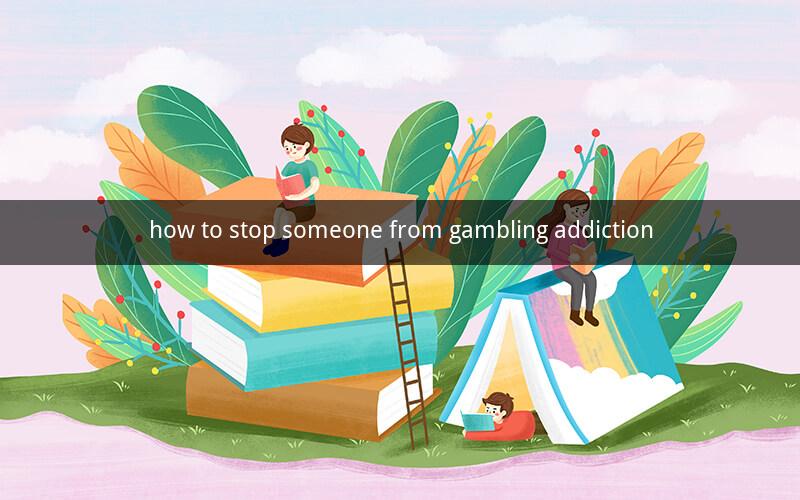
Table of Contents
1. Understanding Gambling Addiction
2. Identifying the Signs of Gambling Addiction
3. Communicating with the Gambler
4. Encouraging Professional Help
5. Setting Clear Boundaries
6. Providing Support and Resources
7. Understanding the Role of Technology
8. The Importance of Self-Care
9. The Impact of Social Support
10. Long-Term Strategies for Recovery
1. Understanding Gambling Addiction
Gambling addiction, also known as problem gambling, is a behavioral disorder characterized by the inability to control the urge to gamble. It is often a result of psychological, social, and environmental factors. Understanding the nature of gambling addiction is crucial in developing effective strategies to help someone overcome it.
2. Identifying the Signs of Gambling Addiction
Recognizing the signs of gambling addiction is the first step in addressing the issue. These signs include:
- Increased time spent gambling
- Preoccupation with gambling
- Borrowing money to fund gambling activities
- Lying about gambling habits
- Neglecting responsibilities due to gambling
- Engaging in risky behaviors to recover gambling losses
3. Communicating with the Gambler
Communicating effectively with the person struggling with gambling addiction is essential. This involves:
- Expressing concern without judgment or criticism
- Listening actively and empathetically
- Avoiding confrontational language
- Encouraging the person to seek help
4. Encouraging Professional Help
Seeking professional help is crucial in treating gambling addiction. This may involve:
- Therapeutic counseling
- Medication
- Support groups
- Rehabilitation programs
5. Setting Clear Boundaries
Establishing clear boundaries is important in preventing the person from relapsing. This includes:
- Limiting access to gambling venues
- Monitoring financial transactions
- Restricting access to credit cards and loans
6. Providing Support and Resources
Supporting the person in their recovery journey is vital. This can be achieved by:
- Encouraging participation in support groups
- Providing educational resources on gambling addiction
- Assisting with transportation to counseling sessions or support group meetings
7. Understanding the Role of Technology
Technology plays a significant role in gambling addiction. Understanding its impact is crucial in addressing the issue. This includes:
- Monitoring online gambling activities
- Limiting access to gambling websites
- Encouraging the use of apps that help manage gambling behavior
8. The Importance of Self-Care
Self-care is essential for both the person struggling with gambling addiction and their loved ones. This involves:
- Prioritizing mental and physical health
- Engaging in activities that promote relaxation and stress relief
- Seeking support from friends, family, or professionals
9. The Impact of Social Support
Social support is a critical factor in overcoming gambling addiction. This includes:
- Encouraging the person to maintain relationships with supportive friends and family
- Joining support groups for loved ones of gamblers
- Seeking guidance from professionals specializing in addiction and mental health
10. Long-Term Strategies for Recovery
Long-term strategies for recovery include:
- Continuing therapy and counseling
- Participating in support groups
- Developing healthy coping mechanisms
- Establishing a strong support network
Questions and Answers
1. What are the common causes of gambling addiction?
- Common causes include psychological factors such as impulsivity, depression, and anxiety, as well as social factors such as peer pressure and exposure to gambling.
2. How can I help a loved one who is struggling with gambling addiction?
- You can help by expressing concern without judgment, encouraging them to seek professional help, and providing support throughout their recovery journey.
3. What are some effective treatments for gambling addiction?
- Effective treatments include therapeutic counseling, medication, support groups, and rehabilitation programs.
4. How can I tell if someone is struggling with gambling addiction?
- Signs of gambling addiction include increased time spent gambling, preoccupation with gambling, borrowing money to fund gambling activities, and neglecting responsibilities.
5. Is it possible to recover from gambling addiction?
- Yes, it is possible to recover from gambling addiction with the right support and treatment.
6. How can I help my loved one avoid relapse?
- You can help by setting clear boundaries, monitoring financial transactions, and encouraging participation in support groups.
7. What role does technology play in gambling addiction?
- Technology plays a significant role in gambling addiction by making it easier to access gambling websites and apps.
8. How can I support a loved one in their recovery journey?
- You can support them by providing emotional support, encouraging participation in support groups, and assisting with transportation to counseling sessions.
9. What are some healthy coping mechanisms for gambling addiction?
- Healthy coping mechanisms include engaging in activities that promote relaxation and stress relief, such as exercise, meditation, and hobbies.
10. How can I maintain a strong support network during my loved one's recovery?
- You can maintain a strong support network by joining support groups for loved ones of gamblers, seeking guidance from professionals, and maintaining open communication with friends and family.